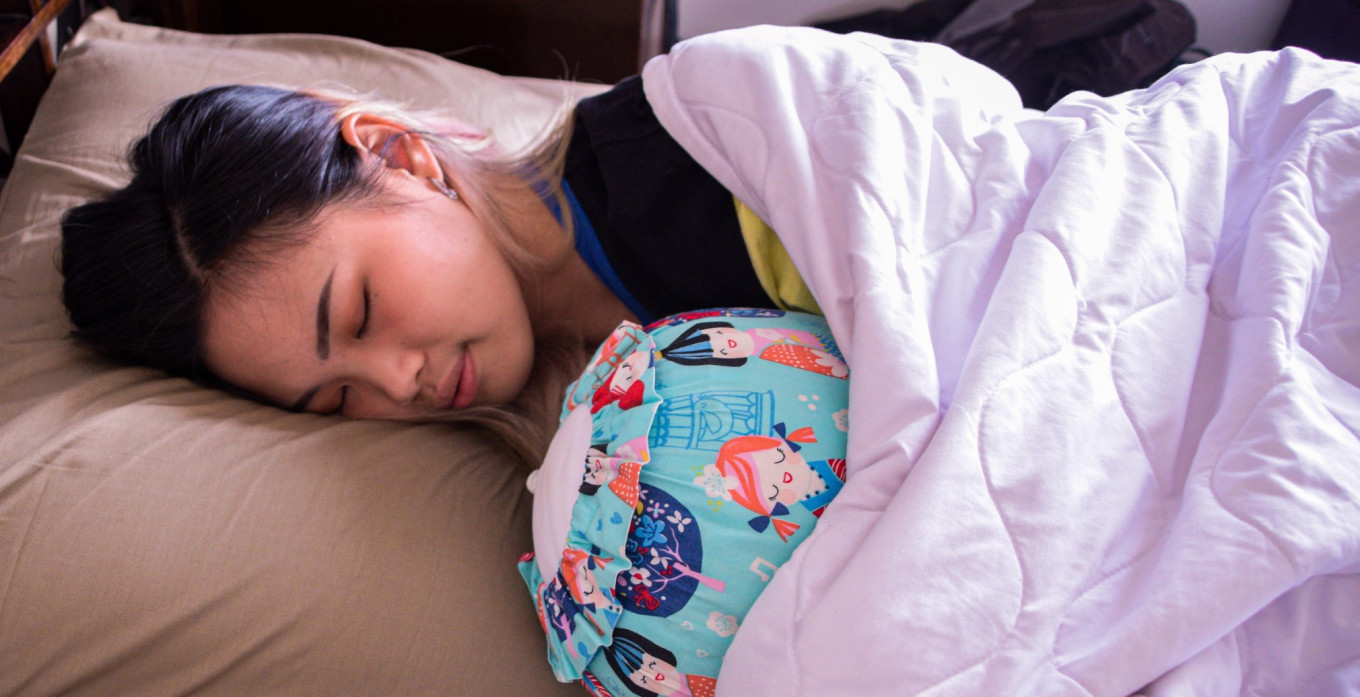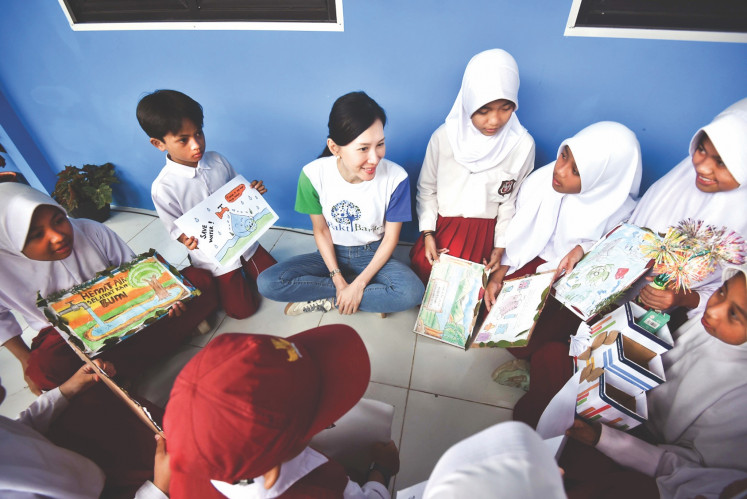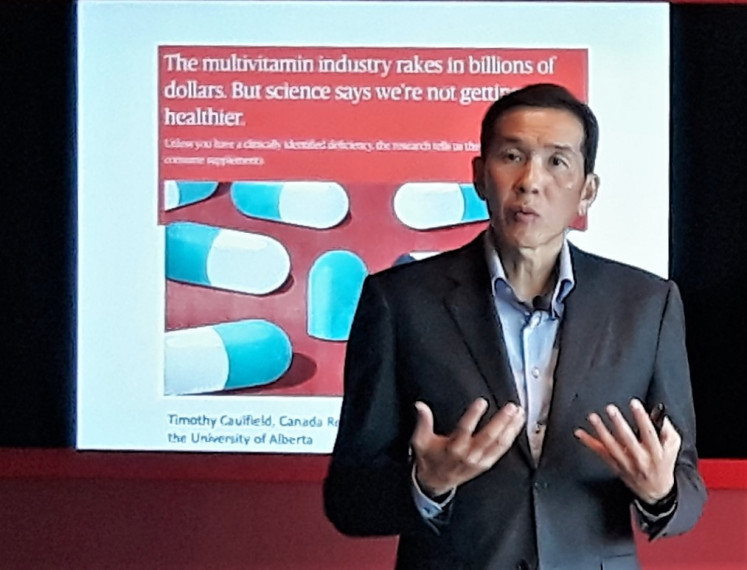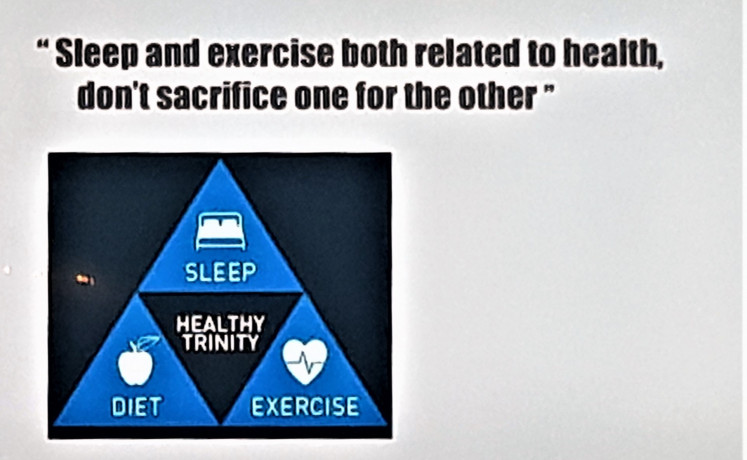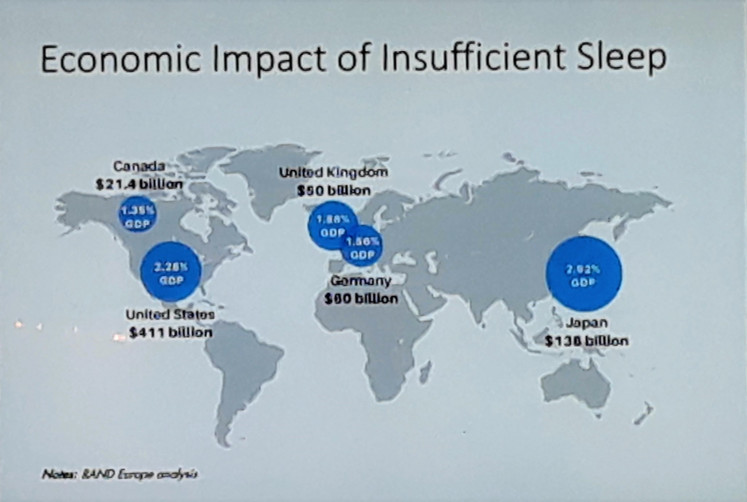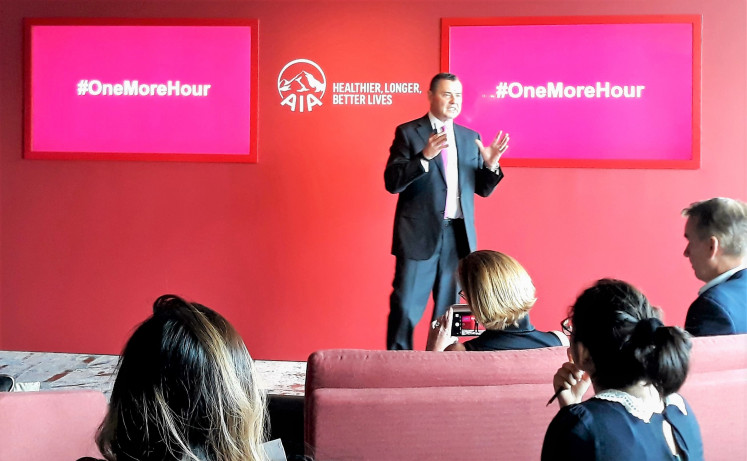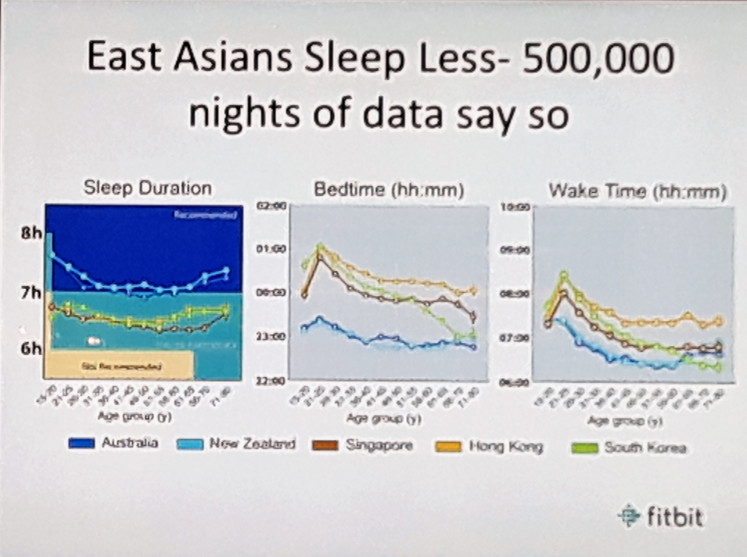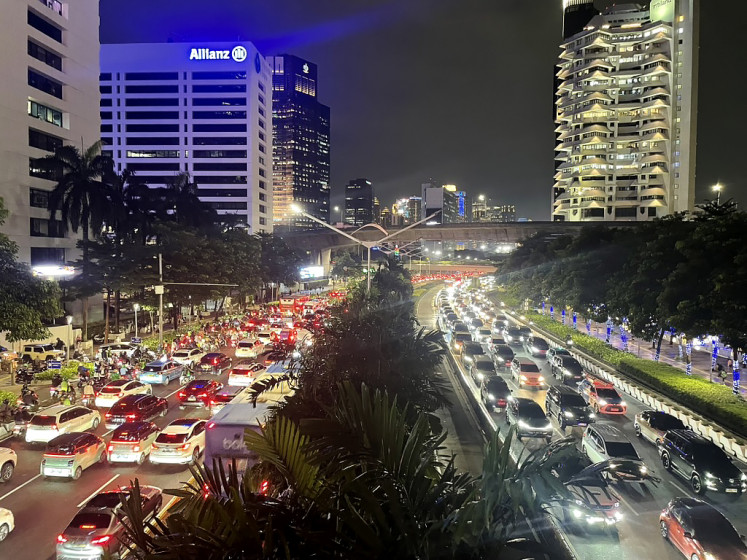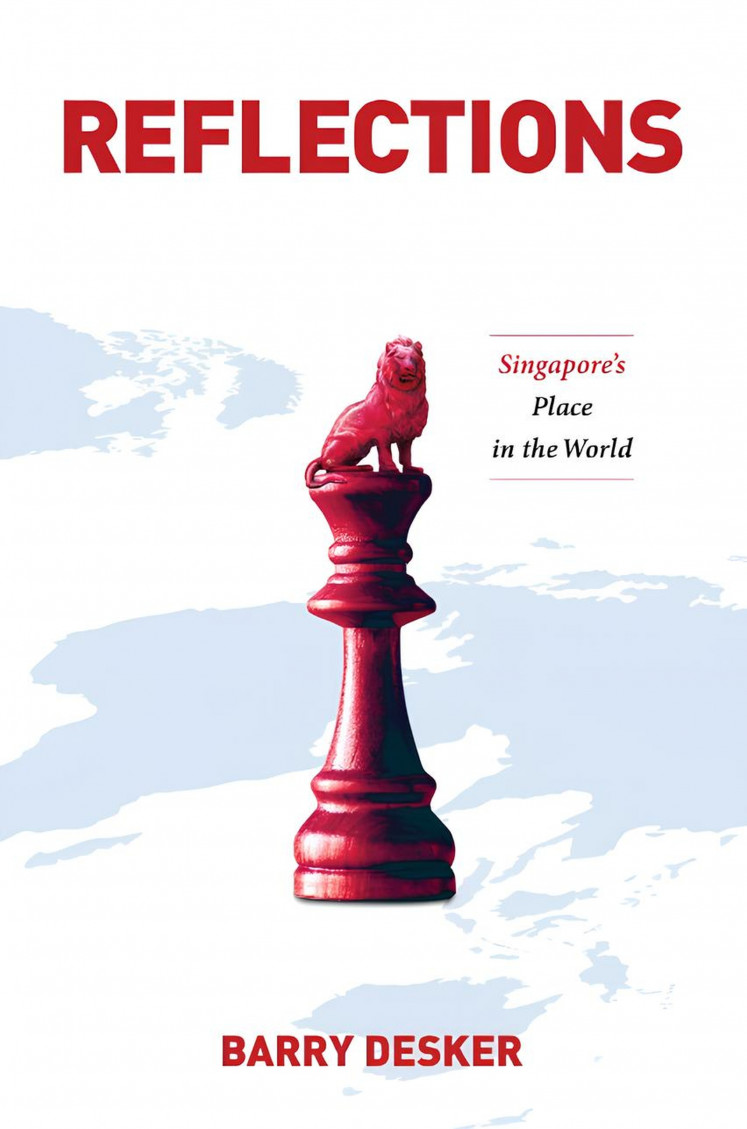Popular Reads
Top Results
Can't find what you're looking for?
View all search resultsPopular Reads
Top Results
Can't find what you're looking for?
View all search results#OneMoreHour: The power of sleep
Sleep is for the weak, some say, but facts show that sleep is the key to success.
Change text size
Gift Premium Articles
to Anyone
A
IA Group Limited invited groups of journalists, including from The Jakarta Post, to the launch of its new initiative, #OneMoreHour, in Singapore. The following is a report of the event.
In this modern day when people juggle their routines, sleep is often sacrificed in a belief it would give them more waking hours to carve their paths to success.
People sleep less and less, not the optimal seven to nine hours needed by most adults, who then try to catch up on weekends, experiencing social jetlag that puts pressure and health risks on their bodies.
Sleep deprivation is a serious issue, with many reports revealing how it has a great impact not just on one’s overall physical and mental health, but also on sex lives and relationships.
One of Asia’s leading sleep scientists, Michael W. Chee, said he is aware that everyone may aspire to go higher, farther and faster.
“Modern lifestyles increasingly steal time from sleep. Unceasing targeted marketing has us constantly yearning to ‘get more out of life’ and causes us to feel bad if we don’t,” said the professor at Duke-NUS Medical School and principal investigator of the Cognitive Neuroscience Lab in Singapore.
“But make no mistake about it, sacrificing sleep comes at personal, as well as community, cost. It has been estimated that developed economies suffer a loss of 2 to 3 percent of their annual [gross domestic product] GDP as a result of insufficient sleep.”
In his presentation, Chee disclosed research that shows how sleep loss would block people’s roads to success as it degrades perception, attention and the ability to encode memory.
In the longer term, sleep deprivation puts people at risk of diabetes, heart attack, stroke, early cognitive decline, dementia, some types of cancer, mental illness, accidents and lower productivity.
“Sleep deprivation is a means of torture, for a good reason. Why do you do it to yourself?” Chee said. “I ask you, can you perform most high-demand jobs when you’re fatigued?”
Hard facts: Sleep expert Michael W. Chee discloses research that shows how sleep loss degrades perception, attention and the ability to encode memory. (JP/Stevie Emilia)Chee said the multivitamin industry rakes in billions of dollars, but science says we’re not getting healthier.
“Most public health bodies and governments have focused on diet and exercise. But guess what, if you don’t have enough sleep, it will affect the other two. Sleep is really important,” said Chee, who has studied sleep over the past 16 years.
“Sleep is something you can do for yourself, something you don’t have to pay for. It has far more value, more impact than supplements will ever have.”
Gain sleep: When it comes to maintaining a healthy weight, sleep can be just as important as diet and exercise as it helps improve one's metabolism. (JP/Stevie Emilia)Sleep boosts one’s immune system – meaning less time off work and fewer sick days. It improves metabolism, which in turn helps one maintain a healthy weight, helps lift mood and energy and reduces the likelihood of suffering from chronic disease.
Sleep hacks may offer shortcuts for people to benefit from sleep without making significant life changes, but Chee likened such advice to liposuction and facial uplifts – they may look good from the outside but they don’t actually change the underlying fundamentals.
#OneMoreHour
Facts and figures: It has been estimated that developed economies suffer a loss of 2 to 3 percent of their annual GDP as a result of insufficient sleep. (JP/Stevie Emilia)The professor made his point during the launch of insurance company AIA Group Limited’s new initiative called #OneMoreHour in the Asia-Pacific region in Singapore on Sept. 16.
The initiative was designed to help combat sleep deprivation by raising awareness of the health benefits of getting enough sleep and it comes with tips, tools and rewards to encourage people to change their behavior to get more and better sleep.
Research conducted by AIA from May to July this year – involving 5,000 respondents in China, Hong Kong, Malaysia, Singapore and Thailand – found that 69 percent of the people surveyed did not feel good about how much sleep they get, while 62 percent said they either worry about not getting enough sleep or want more sleep.
“Over half of people surveyed [55 percent] said they get just six hours or fewer of sleep per night,” said Stuart A. Spencer, AIA Group chief marketing officer.
“Sixty-two percent agreed that getting one more hour of sleep would boost their mood and energy.”
Fighting sleep loss: AIA Group chief marketing officer Stuart A. Spencer presents his company's newly launched initiative, #OneMoreHour, designed to help combat sleep deprivation, in Singapore on Sept. 16. (JP/Stevie Emilia)He said he found the idea that sleep sacrifice somehow engenders success was just wrong and ridiculous.
“We believe, and the point we’re making today is, the true catalyst to success is getting enough sleep. Sleep is the enabler of performances, sleep is the drive of well-being, sleep is the ultimate performance drive,” he said.
“Just one more hour of sleep can provide an extensive number of health benefits and yet sleep deprivation continues to affect an increasing number of people in Asia.”
The findings: People sleep less and less – not the optimal seven to nine hours for most adults. (JP/Stevie Emilia)At the launch, AIA, which has a presence in 18 markets in the Asia-Pacific, also introduced updates to AIA Vitality – its leading science-backed wellness program tied to smart watches – to encourage and reward healthier sleeping habits. The updates are to soon be launched in Indonesia.
Spencer said the sleep initiative – launched in line with the brand’s promise of healthier, longer and better lives – also aims to transform the narrative of insurance, moving away from being a payer to be a partner, from transactional to relational. “No longer are we satisfied with: You die, we pay. AIA is leading the transformation to focus on life, to focus on living,” Spencer said.
In Indonesia, many, especially those living in big cities, find sleep is still a luxury.
Public relations practitioner Amanda Andono told The Jakarta Post on Saturday that she would love to have not only one but a couple of hours of extra sleep, fully aware that sleep helps her to focus, stay fit and in a good mood.
The mother of three and her family’s breadwinner sleeps five to six hours at the most, getting up at 5 a.m. to do her daily chores before leaving for work.
In the evening, she spends time with her family, takes care of her unfinished chores and office work, prepares for the next day’s routine and plays on her phone for about 30 minutes before going to bed at between 11 p.m. or 1 a.m.
“Sleep is very important,” Amanda says. “I actually want to go back to sleep in the morning but it’s impossible since many things are already waiting and need to be done before I leave for work.”
Author Nuril Basri recalled that when he was little, sleep was a luxury – with people in his kampung waking up hours before sunrise to get ready to pray, farm and go to the market. In his house, his mother, who sold snacks, started cooking as early as 3 a.m.
“I was told that sleeping longer would make one’s heart dull,” Nuril says.
Later, when he left home to attend a pesantren (Islamic boarding school) at the age of 13, he had to wake up at 3 a.m. to pray. “I was told not to sleep too much or my eyes would rot,” recalled Nuril, now 34.
When he was in college and doing different jobs – from being a salesman or waiter on a cruise ship, Nuril said sleep was something he looked forward to on his days off.
In the past two years, however, after he decided to make writing his full-time job, his sleep schedule was in chaos he got about five hours tops.
“Sleep for me is like restarting everything,” Nuril told the Post on Saturday before leaving for the United Kingdom on a book tour. “When I’m sad, anxious, angry or troubled, I will sleep and feel refreshed when waking up.”

